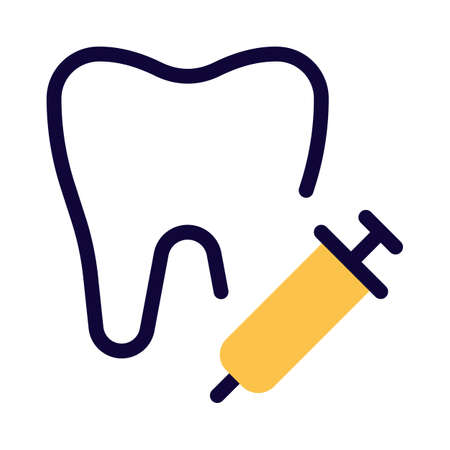1. Understanding the True Cost of Dental Implants
When considering dental implants, one of the biggest concerns for most people is the cost. Unlike other dental procedures, implants involve multiple steps and require high-quality materials, which can make them more expensive. However, understanding the breakdown of these costs can help you determine if they’re worth it for your situation.
Breaking Down the Costs of Dental Implants
The total cost of dental implants varies based on several factors, including the complexity of your case, the materials used, and any additional procedures required. Below is a general breakdown of what you might expect:
| Cost Component | Description | Estimated Price Range |
|---|---|---|
| Initial Consultation | A visit with your dentist to evaluate if youre a good candidate for implants. | $50 – $300 |
| Surgical Procedure | The actual placement of the implant into your jawbone. | $1,500 – $3,000 per implant |
| Abutment and Crown | The abutment connects the implant to the crown, which replaces the visible part of the tooth. | $1,000 – $3,000 per tooth |
| X-Rays & CT Scans | Necessary imaging to plan and ensure proper placement. | $100 – $500 |
| Bone Grafting (if needed) | If your jawbone lacks sufficient density, grafting may be required before implantation. | $250 – $3,000+ |
| Total Estimated Cost | $3,000 – $6,000+ per implant (varies based on individual needs) | |
Potential Follow-Up Expenses
Dental implants are designed to be a long-term solution, but there are some potential follow-up costs to keep in mind:
- Routine Checkups: Regular visits to ensure the implant remains in good condition.
- Possible Repairs or Replacements: While implants are durable, crowns may need replacement after 10-15 years.
- Mouthguards (if needed): If you grind your teeth at night, a mouthguard may be recommended to protect your implant.
The Long-Term Value of Dental Implants
Although dental implants have a higher upfront cost compared to alternatives like dentures or bridges, they often last much longer and provide better functionality. This makes them a worthwhile investment for many people. By understanding these costs and considering how they fit into your budget, you can make an informed decision about whether dental implants are right for you.
2. Comparing Dental Implants to Other Tooth Replacement Options
When considering dental implants, its important to compare them with other common tooth replacement options like dentures and bridges. Each option has its pros and cons, and understanding how they differ in terms of longevity, functionality, and overall value can help you make the best decision for your needs.
Longevity
One of the biggest advantages of dental implants is their durability. Unlike dentures and bridges, which may need to be replaced every few years, dental implants can last a lifetime with proper care.
| Tooth Replacement Option | Average Lifespan | Maintenance Required |
|---|---|---|
| Dental Implants | 20+ years (often lifelong) | Regular brushing, flossing, and dental check-ups |
| Bridges | 10-15 years | Special cleaning under the bridge and regular dental visits |
| Dentures | 5-10 years | Daily removal, cleaning, and occasional adjustments |
Functionality
Dental implants function more like natural teeth compared to dentures or bridges. They are anchored directly into the jawbone, providing stability that prevents slipping or shifting while eating or speaking.
- Dental Implants: Feel and function like real teeth; allow for normal chewing strength.
- Bridges: Provide good function but rely on adjacent teeth for support, which may cause stress on those teeth.
- Dentures: Can slip or move while eating or talking; often require adhesive for better stability.
Overall Value
The upfront cost of dental implants is higher than other options, but they often provide better long-term value due to their durability and low maintenance needs.
| Factor | Dental Implants | Bridges | Dentures |
|---|---|---|---|
| Initial Cost | Higher | Moderate | Lower |
| Long-Term Cost | Lower (due to longevity) | Moderate (may need replacement) | Higher (frequent replacements needed) |
| Aesthetic Appeal | Most natural-looking | Good appearance but may not match gumline perfectly | Can look artificial if not well-fitted |
| Bite Strength & Comfort | Mimics natural teeth; no dietary restrictions | Slightly weaker bite force than implants | Lowers bite force; may cause discomfort when eating hard foods |
Which Option Is Best for You?
The right choice depends on your budget, lifestyle, and long-term oral health goals. If youre looking for a permanent solution that closely mimics natural teeth, dental implants are often the best investment. However, if you need a more affordable short-term solution, bridges or dentures might be viable alternatives.
If youre unsure which option suits you best, consult with a dentist who can assess your specific situation and guide you toward the most suitable choice.

3. Evaluating the Long-Term Benefits of Dental Implants
When considering whether dental implants are worth the investment, its essential to look beyond the upfront cost and examine the long-term benefits. Unlike other tooth replacement options, implants offer lasting advantages for your oral health and overall well-being.
Improved Oral Health
Dental implants function like natural teeth, which means they help maintain proper oral hygiene and reduce the risk of gum disease. Unlike dentures, which can trap food particles and bacteria, implants allow you to brush and floss normally. Additionally, since implants do not require support from neighboring teeth like bridges do, they help preserve the integrity of your remaining natural teeth.
Prevention of Bone Loss
One of the most significant benefits of dental implants is their ability to prevent bone loss in the jaw. When a tooth is lost, the underlying bone begins to deteriorate due to lack of stimulation. Over time, this can lead to facial sagging and a prematurely aged appearance. Dental implants act as artificial tooth roots, stimulating the jawbone and preventing bone deterioration.
Comparison: Implants vs. Other Tooth Replacement Options
| Factor | Dental Implants | Bridges | Dentures |
|---|---|---|---|
| Longevity | 20+ years with proper care | 10-15 years | 5-7 years |
| Affects Neighboring Teeth? | No | Yes (requires support from adjacent teeth) | No |
| Prevents Bone Loss? | Yes | No | No |
| Easier to Maintain? | Yes (brush and floss like natural teeth) | No (requires special cleaning tools) | No (needs removal and soaking) |
| Aesthetic & Comfort | Mimics natural teeth in appearance and feel | Aesthetic but may not feel as natural | Can slip or feel bulky in the mouth |
A Better Quality of Life Over Time
The long-term impact of dental implants extends beyond just oral health. They improve speech clarity, restore confidence in smiling, and eliminate discomfort associated with traditional dentures. With implants, you won’t have to worry about slippage or dietary restrictions—allowing you to enjoy your favorite foods without hesitation.
The Bottom Line on Long-Term Benefits
If youre looking for a solution that enhances both your oral health and overall well-being, dental implants stand out as a worthwhile investment. While they may have a higher initial cost compared to other options, their durability, functionality, and long-term advantages make them a compelling choice for many individuals.
4. Considering Insurance and Financing Options
The cost of dental implants can be a significant investment, but there are ways to make it more manageable. Understanding your insurance coverage, exploring financing plans, and considering alternative payment options can help you determine if dental implants are financially feasible for you.
Understanding Dental Insurance Coverage
Dental insurance policies vary widely in their coverage for implants. Some plans may cover a portion of the procedure, while others may exclude it altogether. Its essential to check with your provider to see what is included.
Questions to Ask Your Insurance Provider
- Does my plan cover dental implants?
- If not, are there alternative procedures that are covered?
- What percentage of the procedure will insurance pay for?
- Are there annual or lifetime limits on implant coverage?
- Do I need pre-authorization before getting implants?
Exploring Financing Plans
If your insurance does not fully cover dental implants, financing options can help spread out the cost over time. Many dental offices offer financing plans or work with third-party lenders to provide flexible payment solutions.
Common Financing Options
| Financing Option | Description |
|---|---|
| In-House Payment Plans | Dentists may offer installment plans with little or no interest. |
| Healthcare Credit Cards | Specialized credit cards like CareCredit allow patients to pay over time. |
| Personal Loans | You can take out a personal loan from a bank or lender to cover the cost. |
| HSAs and FSAs | If you have a Health Savings Account (HSA) or Flexible Spending Account (FSA), funds may be used for implants. |
Considering Alternative Payment Methods
If financing isnt an option, there are other ways to reduce costs:
Savings and Budgeting
If possible, setting aside money each month specifically for the procedure can help lessen the financial burden when its time for treatment.
Dental Discount Plans
Dental discount programs offer reduced rates on various procedures, including implants. These are not insurance plans but can still provide significant savings.
Dentistry Schools and Clinics
If youre open to working with dental students under professional supervision, university dental schools often offer lower-cost implant procedures.
5. Assessing If Dental Implants Are Right for You
Dental implants can be a life-changing solution, but they’re not for everyone. Before making a decision, it’s important to evaluate your oral health, lifestyle, and personal priorities to determine if they are the right investment for you.
Oral Health Considerations
Your overall dental health plays a major role in determining if youre a good candidate for implants. Here are some key factors to consider:
| Factor | Why It Matters |
|---|---|
| Gum Health | You need healthy gums free from gum disease to support the implant. |
| Jawbone Density | A strong jawbone is necessary to anchor the implant securely. |
| No Ongoing Infections | If you have untreated infections or decay, they must be addressed first. |
| No Teeth Grinding (Bruxism) | Excessive grinding can put too much pressure on implants, potentially causing failure. |
Lifestyle Factors
Your daily habits and routines also impact whether dental implants are a good choice for you:
- Tobacco Use: Smoking can slow down healing and increase the risk of implant failure.
- Diet & Nutrition: A well-balanced diet supports healing and long-term success.
- Oral Hygiene Commitment: Regular brushing, flossing, and dental visits are essential to maintain implants.
- Bite Force & Eating Habits: If you frequently chew hard foods or clench your teeth, it could impact implant longevity.
Your Personal Priorities
The value of dental implants extends beyond oral health. Think about what matters most to you:
- Aesthetics: Do you want a natural-looking, long-term tooth replacement?
- Permanence: Are you looking for a durable option instead of removable dentures?
- Simplicity & Convenience: Would you prefer a solution that doesn’t require adhesives or special cleaning procedures?
- Total Cost Over Time: Are you willing to invest upfront for long-term benefits?
The Bottom Line: Are You a Good Candidate?
If you have good oral health, strong bone density, and are committed to maintaining your implants, they could be an excellent option. However, if any risk factors apply to you—such as gum disease or smoking—you may need to address these concerns first or explore alternative treatments.


